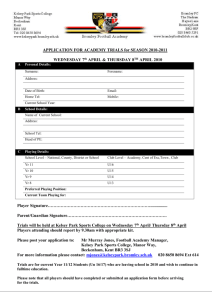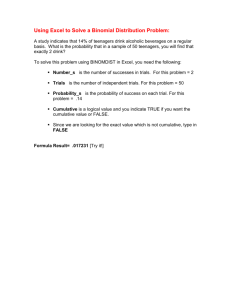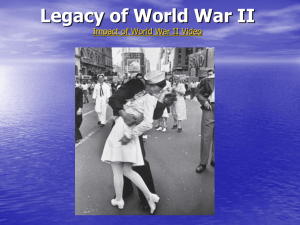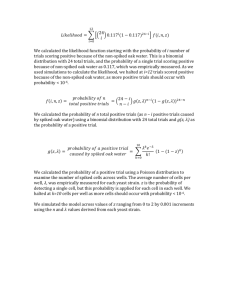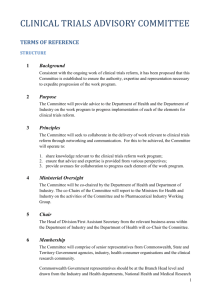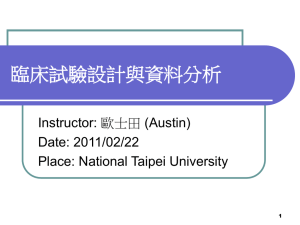Popular trials- TOPICS FOR SEMINAR PRESENTATIONS
advertisement
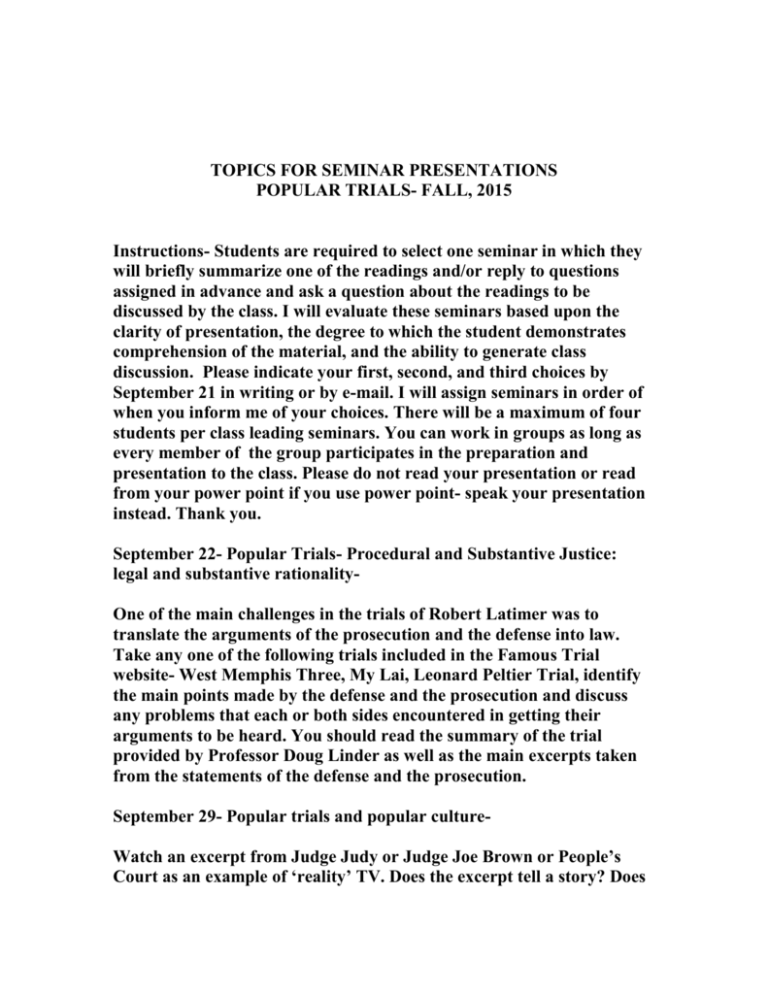
TOPICS FOR SEMINAR PRESENTATIONS POPULAR TRIALS- FALL, 2015 Instructions- Students are required to select one seminar in which they will briefly summarize one of the readings and/or reply to questions assigned in advance and ask a question about the readings to be discussed by the class. I will evaluate these seminars based upon the clarity of presentation, the degree to which the student demonstrates comprehension of the material, and the ability to generate class discussion. Please indicate your first, second, and third choices by September 21 in writing or by e-mail. I will assign seminars in order of when you inform me of your choices. There will be a maximum of four students per class leading seminars. You can work in groups as long as every member of the group participates in the preparation and presentation to the class. Please do not read your presentation or read from your power point if you use power point- speak your presentation instead. Thank you. September 22- Popular Trials- Procedural and Substantive Justice: legal and substantive rationalityOne of the main challenges in the trials of Robert Latimer was to translate the arguments of the prosecution and the defense into law. Take any one of the following trials included in the Famous Trial website- West Memphis Three, My Lai, Leonard Peltier Trial, identify the main points made by the defense and the prosecution and discuss any problems that each or both sides encountered in getting their arguments to be heard. You should read the summary of the trial provided by Professor Doug Linder as well as the main excerpts taken from the statements of the defense and the prosecution. September 29- Popular trials and popular cultureWatch an excerpt from Judge Judy or Judge Joe Brown or People’s Court as an example of ‘reality’ TV. Does the excerpt tell a story? Does the court achieve a just result? If so, explain. If not, explain. Any thoughts about how what popular presentations of court on reality TV differ from actual trials? Any thoughts on how what is shown differs from Canadian court room interaction? October 6 Topic for discussion- Go to the Famous Trials pagehttp://www.law.umkc.edu/faculty/projects/ftrials/ftrials.htm Familiarize yourself with two of the trials listed on the page- the Amistad Trials and the Haymarket Trials. Read Linder’s accounts of the trials and the sections on procedure in both trials. Questions- 1-Were these partisan trials or political trials within the rule of law? Using the reading by Christenson, give reasons for your conclusions. 2- What are some similarities and differences between these two trials? October 13 – Popular Trials- Legal Discourse, Narrative, and Social RepresentationQuestion- How successful were any or all of the following in getting their narrative recognized by the court? Nelson Mandela, Robert Latimer, Socrates. Read the accounts of the trials of Nelson Mandela and Socrates on the Famous Trials website. Use the reading by Milovanovic in answering this question. October 20- Scottsboro TrialsTopic for discussion- Go to the Famous Trials page- “Scottsboro Boys Trial” – read account and biographies of witnesses, accused, defense lawyer, and judges. Question- How did stereotypes about any or all of the followingethnicity, gender, ‘race’, class, religion, geographic region - affect the outcomes of this trial? October 27- Popular Trials as DramaturgyQuestion: “It’s not truth that determines the outcome of a trial- but whomever tells the best story- the story that is most plausible to judge of jury.” Relate this proposition to the readings for this class- and then give reasons to support, qualify, or challenge this proposition using the readings for the course. Did the Chicago 7 succeed in getting their narrative recognized by the court or the larger community? Give reasons for your conclusions. Go to famous trials website for trial of Chicago 7, read Linder’s account and listen to the audios of the trial included on the website. November 3- Moral performance at trial- Showing RemorseShould courts reduce sentences for defendants who show remorse or should they not include remorse as a factor in sentencing? Give reasons for what whichever position you take using readings for this seminar as well as any of the trials we have so far considered. November 10- Popular trials- Narrative, social representation, and the mediaGo to famous trials website for Los Angeles Police Officers’ Trial- 1992read account and, if you can, watch film clip from George Hollidayincluded on website. Questions- How are police officers and Rodney King represented at trial? How would you explain the gap between public perception of what occurred and how the jury saw the evidence? Or Using Sarat’s article, discuss how violence is put into legal discourse in this trial. Or compare LAPD trial with trial of George Zimmerman in terms of how racialization affected the representation of accused and victim. Use segments from footage of either closing statement of defense or prosecution. Some linkshttp://law2.umkc.edu/faculty/projects/ftrials/zimmerman/Zimmerman.h tml Or compare with trial of Bernard Goetz- see Famous Trials websiteNovember 17- Long Night’s Journey into DayQuestion- Read my article entitled “Showing Remorse at the TRC..” – it will be on my website- What are the differences between approach used in South Africa to deal with crimes against humanity and a judicial approach- What are the advantages and disadvantages of these two approaches- give reasons for your opinions- November 24- Grand TheoryQuestion- Use the perspective of Marx and Durkheim to explain the prosecution and outcome of any one of the following trial(s)- that of Latimer, Louis Riel, Paul Bernardo/Karla Homolka, or trial of Chicago 7- which perspective is more helpful and why?


